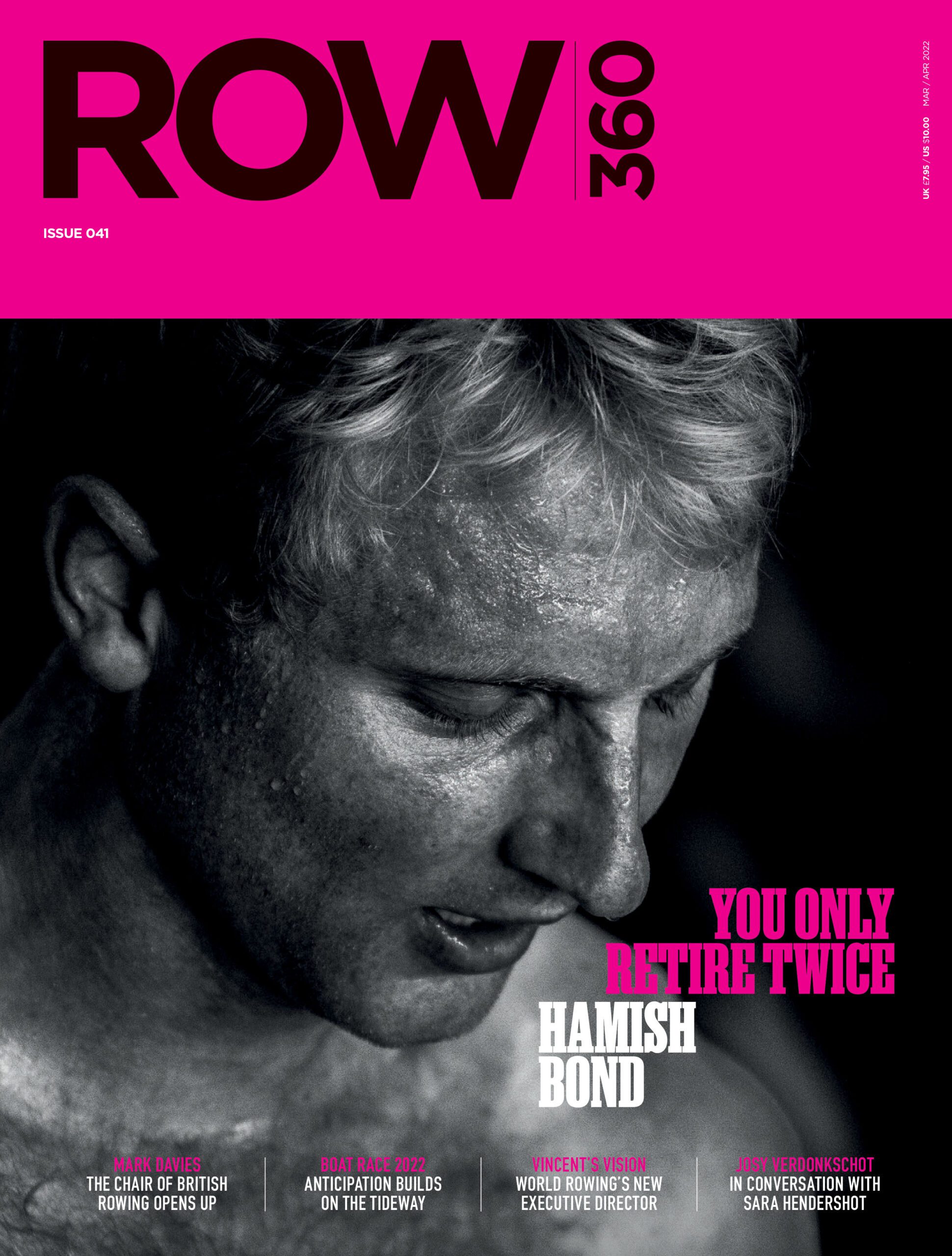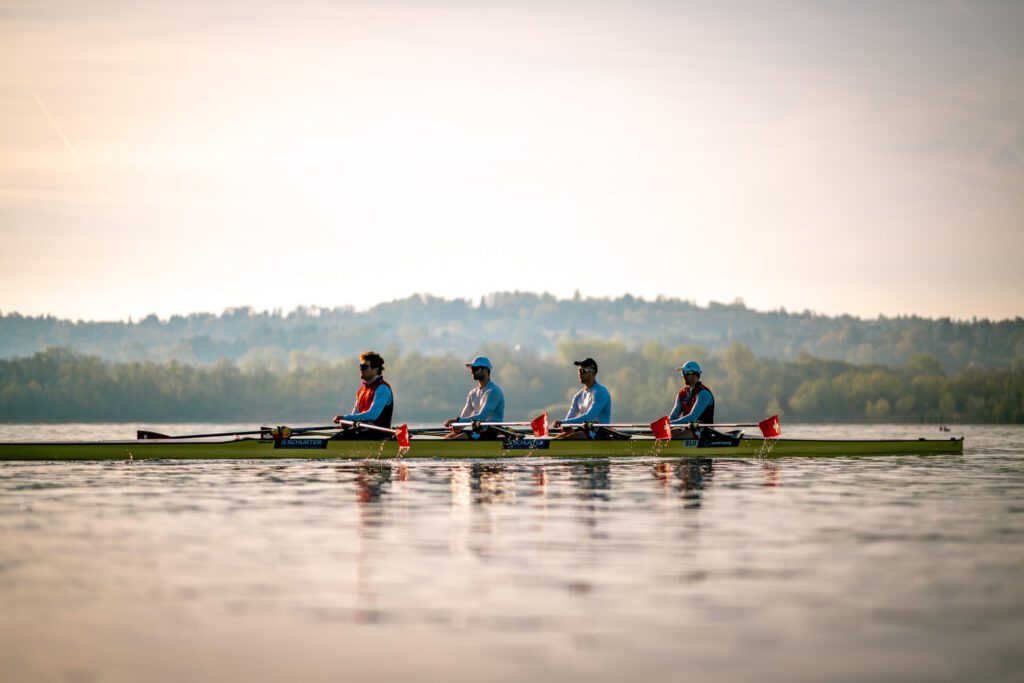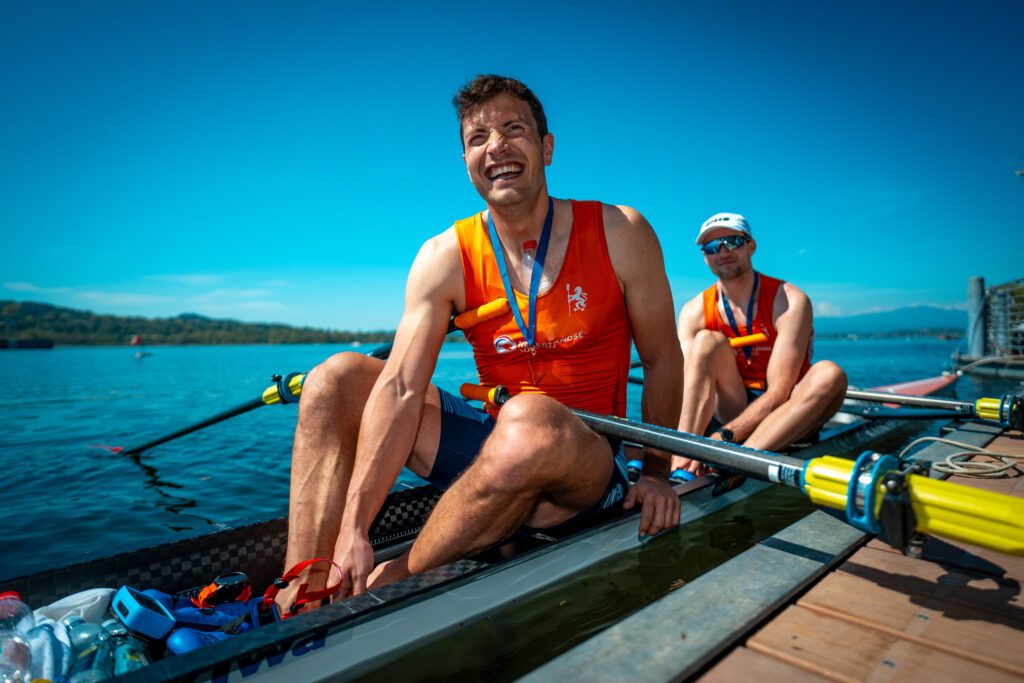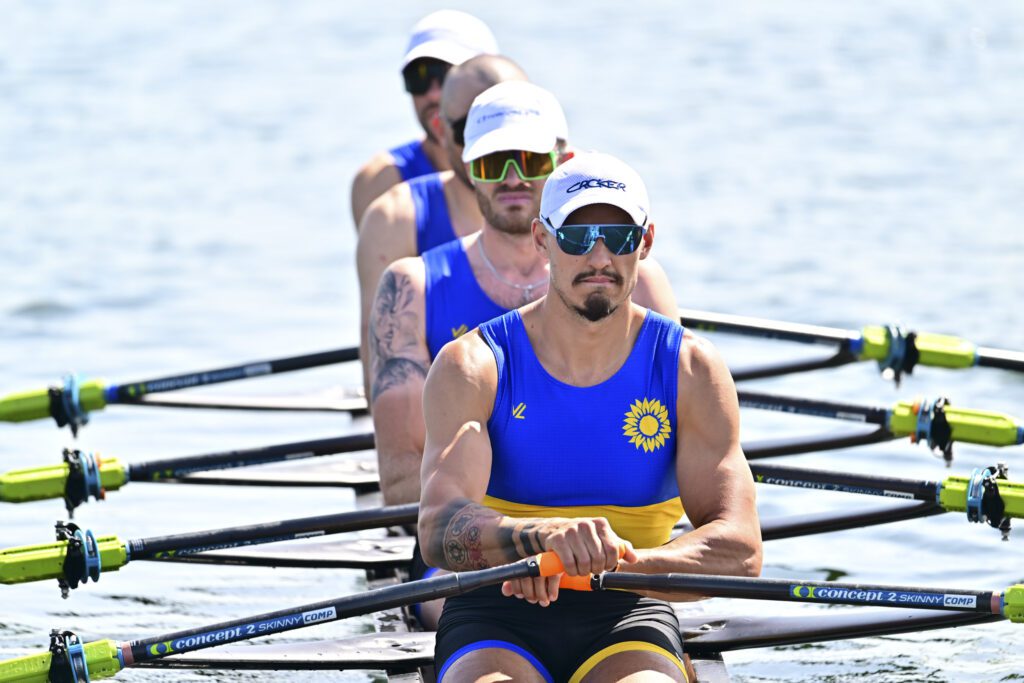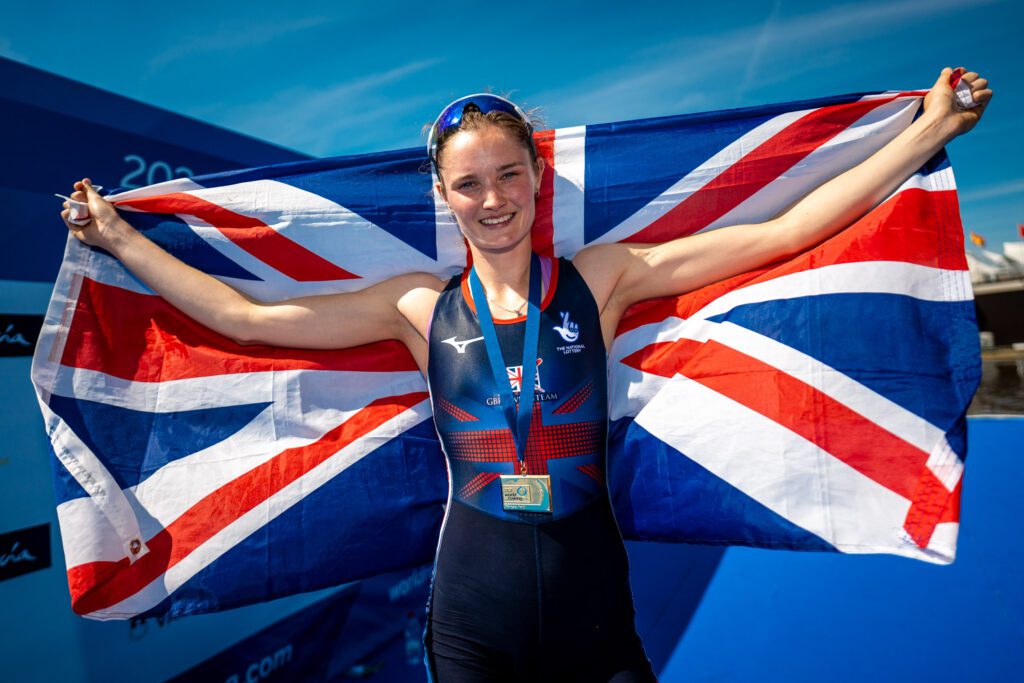Vincent Gaillard succeeded Matt Smith as World Rowing’s Executive Director at the start of 2022. Row360 asks Gaillard what challenges lie ahead and how he hopes to navigate them.
In a nutshell what do you do?
In a nutshell, I lead the World Rowing staff from our Lausanne headquarters, working alongside our President, Council and relevant Commissions to develop the organisation’s strategic plans, to grow and promote all forms of rowing around the world – including coastal, indoor and virtual – and to steer our organisation’s governance, integrity, development, sustainability and commercial initiatives.
What is your vision for World Rowing?
With only a few weeks in the job, it would be premature to pretend having a vision for World Rowing. It will come in due time, but what I can already anticipate is that it will certainly include an ambition for the world to truly appreciate, and experience, the diversity and versatility of our sport beyond its most traditional forms. Rowing in its coastal, indoor and virtual formats for instance, all of which are hugely exciting and offer significant development potential. So, the vision will most certainly include a desire to increase the reach of rowing, and ultimately enable a sustainable development of participation at both elite and grassroots levels, across disciplines and continents.
What changes do you hope to shepherd, and by what timescale?
Change in the areas I have just mentioned is being implemented by the organisation already, and I really hope to contribute to accelerating it. It will not be happening overnight, however; it will also have to be sustainable and thus supported by our entire organisation. All that said, you may also see some positive change in the short-term, with our Olympic strategy for instance, where we hope to enhance the Games, from Los Angeles 2028 onwards, with the addition of one of our coastal rowing formats. This would be a historical change for us undoubtedly, and we hope it will materialize through an IOC decision to be made in 2023.
What does success look like for you in this role?
Ultimately, success must be about substantially increasing the reach and reputation of rowing, enabling a sustainable acceleration in the growth of all our disciplines and formats, both in terms of audience and participation and across geographies. All in the context of a continuous improvement of our governance, integrity, sustainability and safeguarding efforts.
“Be confident and bold, make it fun and enjoy the ride!”
Vincent Gaillard
LEADERSHIP
What is your style of leadership? Who or what has influenced it?
I strive to be collaborative and collegial, to empower people around me to grow in their respective roles and responsibilities, to be confident leading autonomously, innovating, taking risks. I typically get influenced by people who value empathy and emotional intelligence over “hard” skills and aim to find the best in people for a genuinely collective, responsible outcome. David Stern, former commissioner of the NBA and Neville Isdell, Chairman during my days at Coca-Cola – and later on a Board Director at the WWF International – were amongst these leaders that have influenced me.
What’s the best piece of leadership advice you’ve received?
Intimidating, over-controlling people is not the best way to grow an organisation and achieve sustainable results, trust and empowerment always pay off. Along with that, ensuring all individuals within the organisation continuously strive for greater corporate responsibility vis a vis the communities and people the organisation touches, to truly deserve and maintain its ‘licence to operate’.
What advice would you give your younger self?
Be confident and bold, make it fun and enjoy the ride!
“Rowing is a clean sport and has historically been well guarded from the excesses that other sports have experienced.”
Vincent Gaillard
STRATEGY
Is World Rowing beholden to the IOC?
Rowing forms a big part of the Olympic history, and vice versa, the Olympics have played a big part in the growth and reputation of our sport. The IOC and World Rowing enjoy a long-standing partnership, built upon mutual respect and confidence, and we will keep nurturing that relationship in the future. I am hopeful, for instance, that this partnership can be enhanced by the inclusion of some of our new disciplines on the Olympic programme – starting with Coastal Rowing at Los Angeles 2028, knowing that it is already included in the 2026 Youth Olympic programme – which we strongly believe will be beneficial to the Games as a whole.
Does your strategic vision for the financial future of World Rowing seek to diversify its assets and revenue streams? If so, how, and how do you balance the myriad of stakeholder interests?
Of course, we will be aiming to develop revenues outside of the Olympic programme, and with a single objective: serving our sport better and allowing it to grow sustainably and across geographies. This diversification in revenues will naturally mean improving our “product” wherever possible and strengthening our attractiveness to commercial partners. This, in turn, will require aligning our numerous stakeholders around an improved “packaging” of our various disciplines. A significant challenge undoubtedly, but a worthy one, I believe, for our sport.
What are the biggest challenges faced by international sporting bodies right now?
Covid aside, I think the main challenges now being faced by all are the increasingly fragmented media environment and the disruption of traditional revenues that this implies; the need to radically improve the integrity of sport and the safeguarding of people involved with the sport; the need to grasp the implications of Sports activities and global events on the human rights and climate change agendas; these are just a few challenges that have emerged over the last decades and which are now front and centre for us all. Sport needs to act responsibly, and also regain credibility where the mismanagement of some might have tarnished the reputation of all.
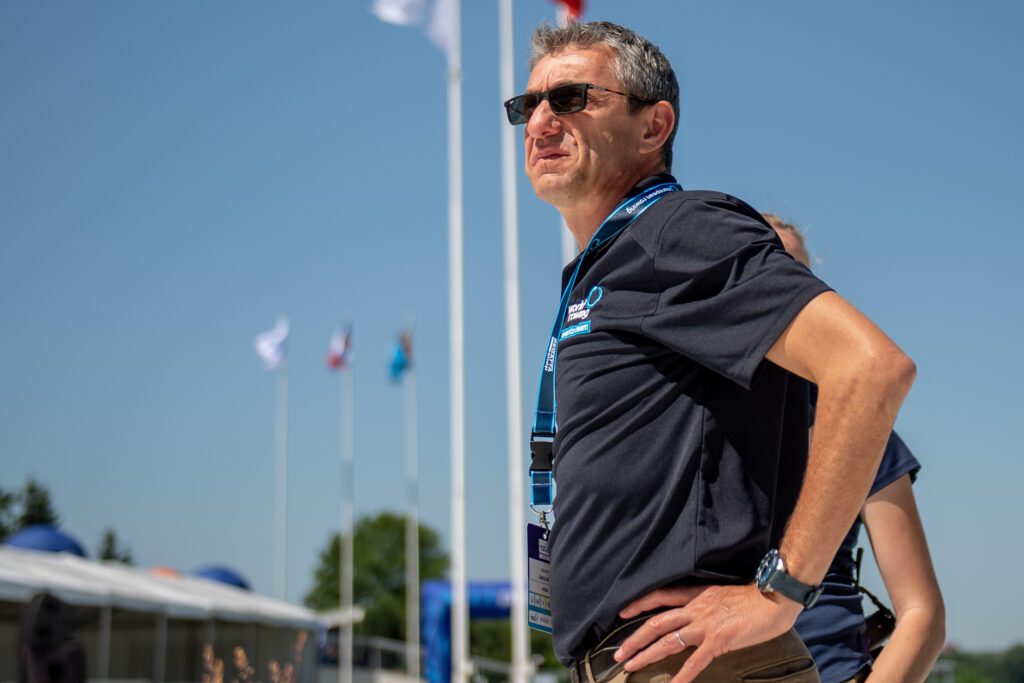
Photo Vincent Gaillard
Credit Benedict Tufnell
CULTURE
Have you noticed any differences in the culture and outlook of World Rowing in comparison to other organisations you have worked for?
Very much so, and I am certainly feeling incredibly refreshed by the culture I am experiencing right now, by the quality of the global rowing governance and of the people who make the sport at international, national and local levels. A healthy place indeed, a very collaborative culture, with people putting much quality time and integrity into their work. Very impressive and boding well for our future development.
Former World Rowing Executive Director Matt Smith: “I am proud that we have kept rowing a sport and not a business. Many measure success by their bank balance but we measure success in sport terms.” How will you measure success?
I wholeheartedly agree with Matt. He and our past/present Presidents must be commended for staying true to that principle. Rowing is a clean sport and has historically been well guarded from the excesses that other sports have experienced. As said, my ultimate measure of success will be about the sport, how it’s growing sustainably and responsibly at both elite and grassroots levels, in a healthy, open and democratic governance environment.
Having worked with the likes of FIFA, the NBA, and Coca-Cola, can the World Rowing family expect a more commercial-minded approach?
The World Rowing family is indeed expecting a more commercial-minded approach, not as an end in itself but to better serve the sport by generating revenue that can be reinvested into meaningful development or promotional initiatives. It is a question of balance in the end, and of associating with commercial partners that share the objective.
LA 2028
Does shortening the LA 2028 course increase the possibility that other race distances might be explored in the future?
It’s very unlikely in my view that a permanent change in the formats of our Olympic, traditional endurance formats (2000-meter) will be considered any time soon. We know the fundamentals of our sport. But we are already developing, alongside these traditional formats, new and innovative formats such as coastal/beach or city sprints, offering new, exciting ways to access our sport, and which we hope will also have their place on future Olympic programmes.
Is it incongruous that the Olympic qualification events are over a different distance from the LA 2028 Olympics itself?
It is a unique situation, brought about by a very specific Los Angeles context, that eventually led us to consider that our sport was much better off in Long Beach than in Lake Perris, even though the course would limit us to 1500-meter races. All things considered, it is absolutely the right decision, one which required some flexibility for all – athletes in the first place – but did not justify a radical change of qualification formats. So, I would not say “incongruous”, but situational and exceptional, and a proof of our ability to adapt without changing the core nature of our sport, where 2000-meter remains the standard distance in our Rules of Racing and the right format for endurance races.
“Environmental conservation is very much in the DNA of our sport.”
Vincent Gaillard
DIVERSITY, EQUITY AND INCLUSION
Does World Rowing have a duty to increase diversity, equity, and inclusion within our sport? If so, what actions are you pursuing, what progress has been made, and what more can be done?
Yes, we do. We are committed to being a more inclusive organisation, and sport in general. It is fundamental for building a sustainable future for our sport. We aim to provide an environment where everyone feels welcome, represented, included in the decision-making process, able to participate, safe and free from discrimination. We are proud that rowing’s Olympic programme is now gender equal in events and athlete numbers. We are proud to be an organisation with a near 50/50 gender balance in the Council and staff, with people coming from all over the world. We are proud to have a Gender Equality, Diversity and Inclusion (GEDI) Cross-Commission that raises awareness across rowing communities to drive cultural change. But we recognise that we still have some way to go to achieve inclusivity across the board. We can all be doing more every day to make our brilliant sport more accessible, inclusive, and open to all.
The Chair of the World Rowing Sport Medicine Commission, Dr. Juergen Steinacker is one of 38 medical experts to have authored a joint statement published in the British Medical Journal Open Sport and Exercise Medicine that responds to the IOC framework on fairness, inclusion and non-discrimination based on gender identity and sex variations. Do you feel the IOC needs to set formal standards as suggested in the joint statement signed by Dr. Juergen Steinacker? Is it possible to balance the inclusion of trans women in female sport while guaranteeing competitive fairness? If so, how?
A complex subject, which will require our policies to factor in social elements along with scientific ones, which is where I believe Dr. Steinacker and the group of experts were coming from. That the IOC ultimately preferred to give responsibility to the individual sports is perfectly understandable, and they probably would have been criticized if they had done the opposite. World Rowing is working hard to find the fairest way to deal with the matter – including transgender but also non-binary cases for instance. We are making progress but there’s more work to do, undoubtedly.
You spent three years in China prior to Beijing 2008 to spearhead Coca-Cola’s Olympic partnership; From your on-ground experience as well as your perspective as a Director and Trustee of the Centre for Sport and Human Rights, do you feel China’s hosting of Olympic Games (Beijing 2008, and Beijing 2022) helps or hinders their human rights record?
Legitimate concerns are being raised by civil society around human rights and mega sporting events, in many parts of the world. These concerns must be taken seriously, with host countries and governing bodies needing to engage firmly because ultimately, they are accountable for human rights harms at or connected to their events. With that said, I am convinced that, ultimately, the fostering of dialogue and opening to global communities generated by the hosting of a global event will generate positive effects over the long-term, because it helps maintain some level of dialogue, encourages debate and mutual understanding.
SUSTAINABILITY
Do you intend to expand World Rowing’s sustainability objectives? What will be your priorities in terms of sustainability?
We are already relatively well advanced I believe, but we will nevertheless strive to continuously expand our positive contribution to water stewardship or climate change mitigation, amongst other issues. I am also very much hoping to grow our relationship with our long-standing partners at the WWF and to develop new joint initiatives, in the different corners of the world where it may make sense for us to be more present.
How do you hope to engage and involve the athletes with these priorities and objectives?
For instance, I am convinced that many of our athletes would be willing to act as ambassadors and/or join as contributors to our sustainability initiatives, if the opportunity is presented to them and “packaged” in the right manner, and as long as it does not disrupt their primary objective of training and competing, obviously. Athletes for sure have a major role to play and can help us go further.
Does driving commercial development and growing the World Rowing organisation and the various rowing disciplines, come at the cost of increasing sustainability?
Quite the contrary. Our operational, commercial and sustainability agendas are and will remain joined at the hip, and our WWF relationship should help us ensure this always remains the case. It is also expected that any growth in the footprint of our organisation will be accompanied by verifiable offsets and compensation programs. Environmental conservation is very much in the DNA of our sport.
What sustainability goals can be achieved by Paris 2024?
Paris 2024, with the city, region and national governments supporting them, have a true opportunity to show the world that the hosting of Olympic and Paralympic Games can be achieved with minimal impact, construction and unnecessary expenditure. It is hoped, also, that the Paris 2024 Olympics will contribute to accelerating the transformation of the city and region on mobility matters. Exciting prospects, and an opportunity for them to raise the bar from where the London 2012 Games placed it. At World Rowing, we are ready to play our part in helping them reach these objectives.
First appeared in
